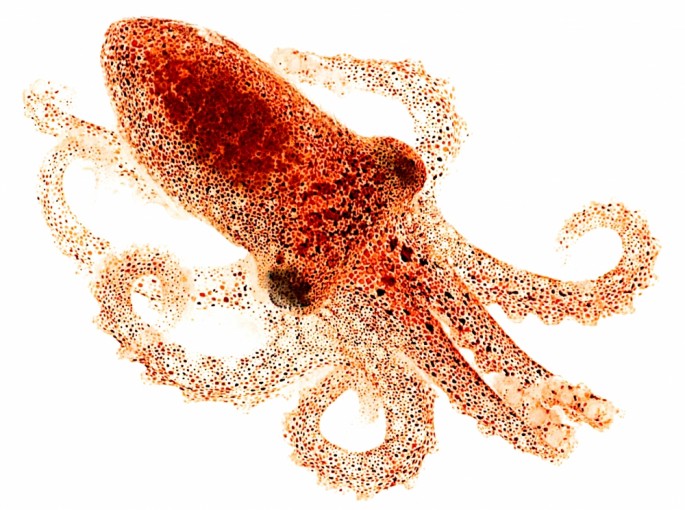Scientists reveal that some octopus species can "see" with their skin.
This type of sensory perception does not work exactly the same as eyesight however the octopus skin apparently has light detection abilities that utilizes light sensitive proteins called opsins that are naturally found in eyes. The octopus can carry out this ability even without commands from its central nervous system.
This new discovery is just one of the uncanny abilities of these cephalopods as the mysterious octopus are also considered to be some of the world's most intelligent and flexible sea creatures.
According to lead author of the study Desmond Ramirez from the University of California at Santa Barbara, the skin of the octopus cannot sense light the same way its eyes and brain work together. However, their special skin can detect an increase or decrease in light, meaning it works best with light brightness as opposed to color contrast and edge.
During the experiments, researchers exposed a sample of a California two-spot octopus skin to white light. During exposure, the chromatophores or pigmented organs on the skin reacted by expanding and changing color. However, in the absence of light, the chromatophores became relaxed and the skin changed back to its normal hue.
Scientists explain that this reaction is probably induced by light sensors that are connected to chromatophores which create an appropriate response without input from the eyes or even the brain.
The main cause why this reaction is seen on the octopus skin is from a compound called rhodopsin which is produced from the eye but apparently also found on the skin. This compound helps in the detection of different wavelengths of light where blue light gets a more obvious response due to the marine environment of the octopus.
According to co-author of the study Todd Oakley, we have discovered new components that produces complex camouflage for the octopus. Apparently, the cellular mechanism found in the octopus eyes' has been adapted by the creature within its skin via light sensing abilities.
This study is published in the Journal of Experimental Biology.



























